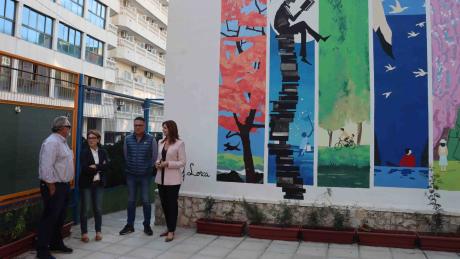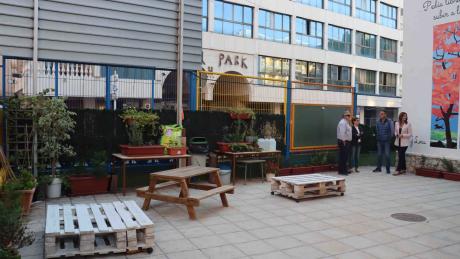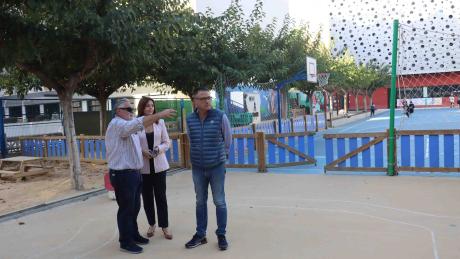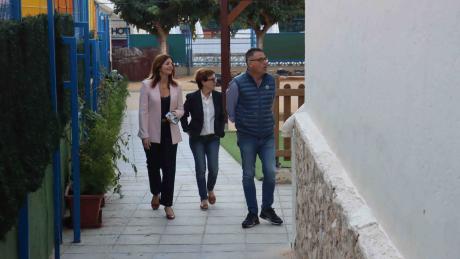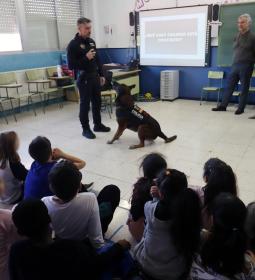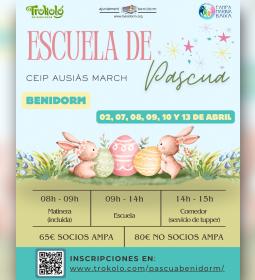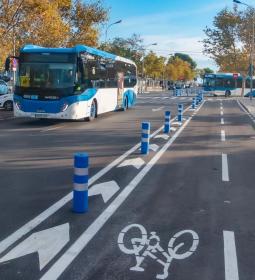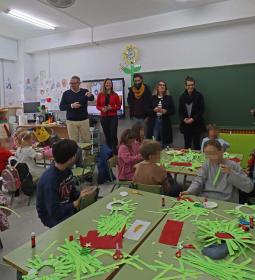The investment for this project, funded by the Biodiversity Foundation, amounts to approximately 150,000 euros
Benidorm launches a project to naturalize the playgrounds of the city's schools
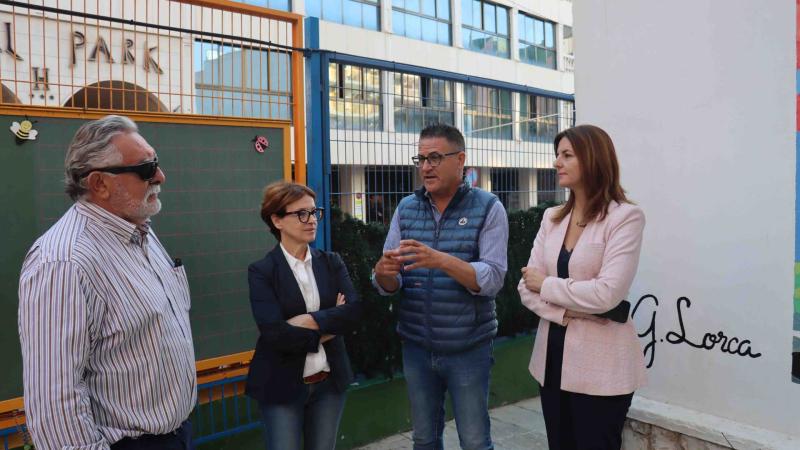
Benidorm City Council will launch a project tomorrow to naturalise the playgrounds of the city's schools. This initiative will be implemented immediately in three schools – Leonor Canalejas, Miguel Hernández, and Gabriel Miró – and will be extended to a fourth school shortly thereafter. The objective is to carry out this type of initiative in all the remaining schools.
The playground naturalisation efforts are part of ‘Benidorm Green and Water’ project, which is supported by the Biodiversity Foundation of the Ministry for Ecological Transition and the Demographic Challenge (MITECO) within the framework of the Recovery, Transformation and Resilience Plan (PRTR), funded by the European Union – Next Generation EU.
The heads of the Education and Parks and Gardens departments, Maite Moreno and José Ramón González de Zárate, believe that renaturalizing school playgrounds “is one of the most effective strategies for improving children's well-being, promoting environmental education, and adapting urban environments to climate change through the use of planting methods for various shade trees and aromatic shrubs to raise environmental awareness among students.”
According to the project, the new playground design will include permeable surfaces by replacing cement with soil, sand, or drainage paving. Native vegetation will also be incorporated through the planting of shade trees, shrubs, school gardens, and rain gardens. Biodiversity areas will be implemented with insect hotels, nest boxes, ponds, and mini-gardens, and natural play areas will be created (logs, stones, ropes, mounds, etc.). Furthermore, students will be educated on water management through rainwater harvesting and its use for irrigation or educational experiments.
This physical transformation of school playgrounds will be accompanied by an educational project. Maite Moreno explained that "the aim is to integrate the playground into the curriculum, involve students in its maintenance, and foster shared responsibility."
For his part, González de Zárate indicated that the City Council is pursuing "the creation of a playground renaturalization program with funding and technical advice that involves architects, landscape designers, and local associations; promoting regulations that incentivise the replacement of hard surfaces; and establishing networks of renaturalized playgrounds to share learning experiences among schools." As mentioned, the Biodiversity Foundation will fund this project, allocating approximately €150,000, according to the councillor.
The work will begin during the town's Patron Saint Festival, taking advantage of the fact that schools are not in session. Once the holidays are over, work will be carried out in the afternoons and on weekends to avoid disturbing the school community. “They will be finished before the end of the year,” González de Zárate stated.
The measures to be adopted are as follows: removal of hard surfaces, integration of play areas, incorporation of organic material, installation of insect hotels to encourage beneficial insects, planting of shade trees (mulberry, chinaberry, and tipuana), installation of high-frequency irrigation systems, use of structural soil, planting of aromatic shrubs for student learning, planting of fruit tree varieties that thrive in the area, removal of architectural barriers that do not comply with the Accessibility Law, creation of rest areas by providing shade from trees, installation of furniture for student use and enjoyment, such as picnic tables for socializing, and the creation of drainage areas to prevent soil erosion.
The councillor emphasised that “the European Union aims to bring the population closer to nature, to more pleasant and healthy areas, and this is a project that contributes to that goal.” González de Zárate also announced that, in addition to the planned work at a fourth school, “two more projects will be carried out in public spaces, which will bring about a significant change.” “These are pilot projects to be extended to all schools and many other streets,” he concluded.
For her part, the Education Councillor also expressed her hope that this new project “will give a new purpose to schoolyards, so that they are not limited to just a space for recreation or physical education, but that the classrooms can be extended here, creating an open space where children can enjoy nature right in their own school.”
